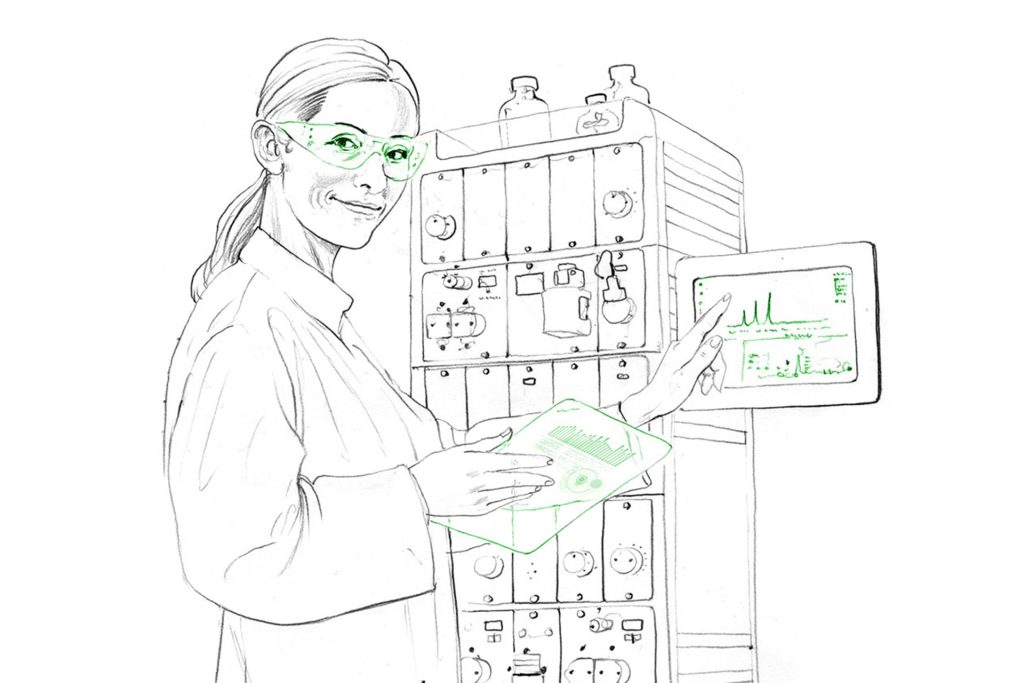In recombinant antibody production, quality is of the essence. Anybody working with antibodies, recombinant antibodies in particular, will be aware of this fact.
There’s not much use in receiving the right amount of antibodies generated if the quality does not meet the expected high standards that are the norm in the pharmaceutical and medical industries.
In order to manufacture high-quality – and, what’s obviously even more important – medically active compounds, the quality of the raw materials utilized needs to be top-notch.
In order to produce and deliver high-quality stable cell lines, the standards applicable to expression systems and during antibody producing processes should be rigorous.
Why is quality so important?
As with anything in life, the quality of a raw ingredient can make or break the final product. Antibodies are invaluable tools in the life sciences, and antibody engineering is a constantly growing field. Their high specificity and selectivity for unique protein targets make them indispensable research reagents.
However, as several recent studies – as published by the National Center for Biotechnology Information Search – have shown, an unexpectedly high number of landmark papers seem to be not reproducible by independent laboratories.
One of the reasons for this dilemma is the quality of non-therapeutic antibodies generated for research, diagnostic, food analytical, environmental, and other purposes.1 They are leading to incorrect, inconsistent and irreproducible results.
As a result of this crisis, scientists and suppliers are looking for strategies to improve the performance of research antibodies.2
More importantly, antibodies are used as a raw ingredient for life-saving medical compounds. This is another reason why quality is non-negotiable and should be a main focus during the development and production process in order to ensure functional antibody delivery in every instance.

Differences in recombinant antibody production quality
At a steadily increasing rate, commercially produced antibodies are used in research as well as in diagnostic and therapeutic applications.
While diagnostic and therapeutic antibodies are subject to stringent regulations by health authorities, there are no standards or quality controls for antibodies used in research. As a result, antibodies generated for research do not always perform as advertised.
As one of the fastest growing sectors, recombinant antibody expression brings with it a number of specialized third-party providers.
And while the individual providers may use different approaches and platforms in recombinant antibody manufacturing, the quality produced should not differ and always be of the highest standards.
The benefits of using CHO cells in recombinant antibody expression
CHO cell culture offers a number of benefits that makes this mammalian cell culture the go-to solution in antibody expression.
Not only does this mammalian cell exhibit a staggering similarity to the human cell system, but it also offers a number of benefits from a scientific as well as economic point of view.
CHO cells offer:
- a yield of 3-10 grams per liter of CHO cell culture
- long-term and large-scale reproducibility
- versatility – they are used in the research and manufacturing of biotherapeutics, antibodies and active pharmaceutical ingredients
Industry’s highest quality standards at evitria
As a result of the crisis described further above, the industry has come to the conclusion that rigorous antibody validation is needed, be it for small- or large-scale production.
After all, the global spend on antibodies used for scientific purposes reaches more than USD 3 billion annually, which is why any antibody produced should be a functional antibody.3
evitria is an established, global antibody expression service provider and is dedicated to offer the highest levels of quality while complying with any applicable standards and regulations during the production of recombinant antibodies.
- 1.Weller MG. Quality Issues of Research Antibodies. Anal Chem�Insights. Published online January 2016:ACI.S31614. doi:10.4137/aci.s31614
- 2.Baker M. Reproducibility crisis: Blame it on the antibodies. Nature. Published online May 19, 2015:274-276. https://www.nature.com/articles/521274a
- 3.Custom Media N research, Scientific T. Quality testing for antibodies is gaining traction. Nature. Published online 2018:2. https://www.nature.com/articles/d42473-018-00082-4